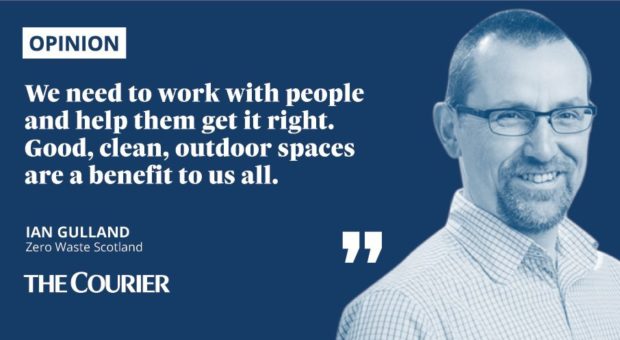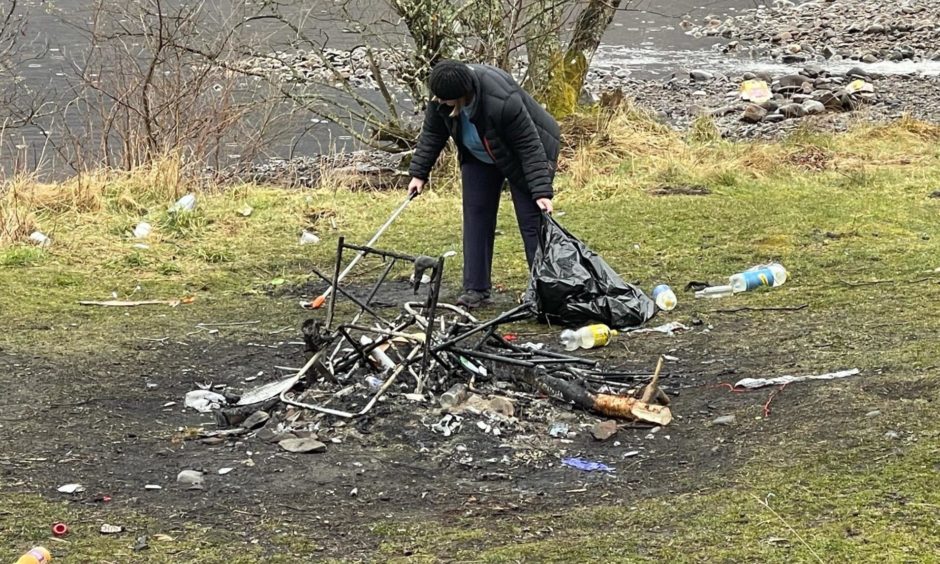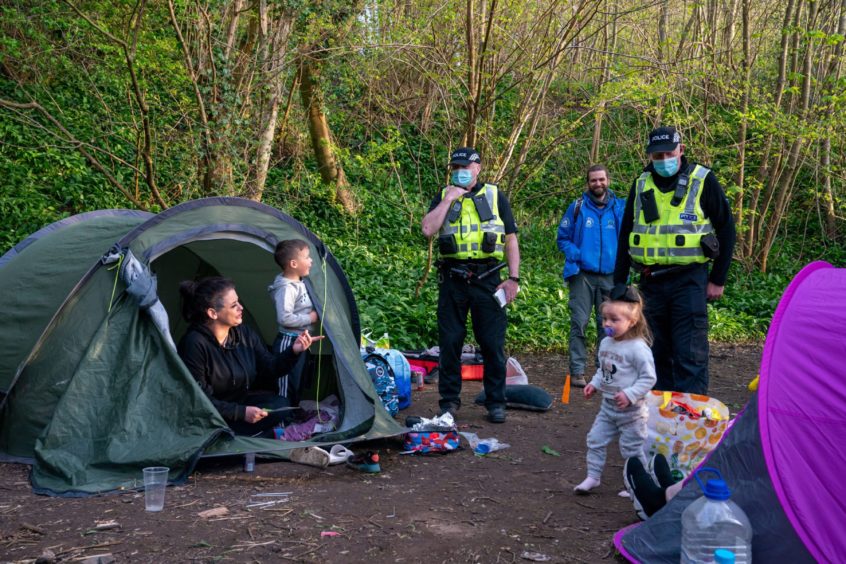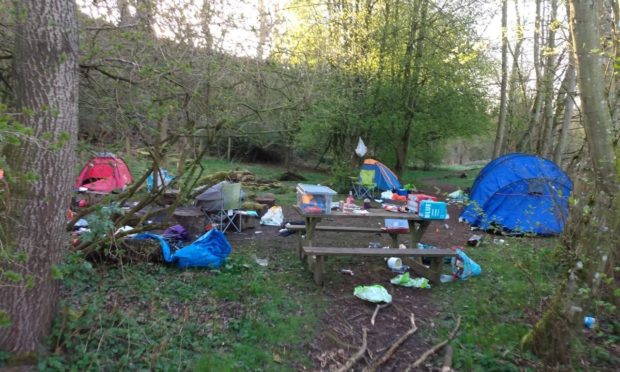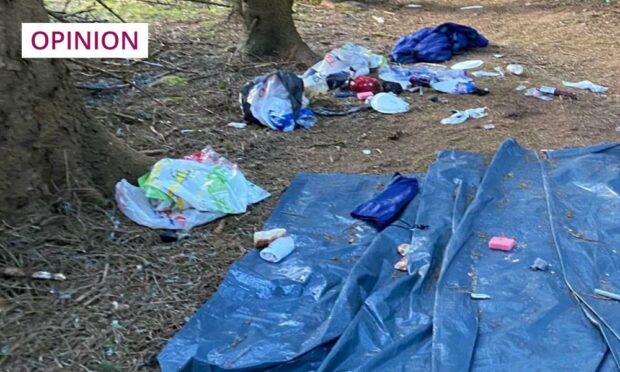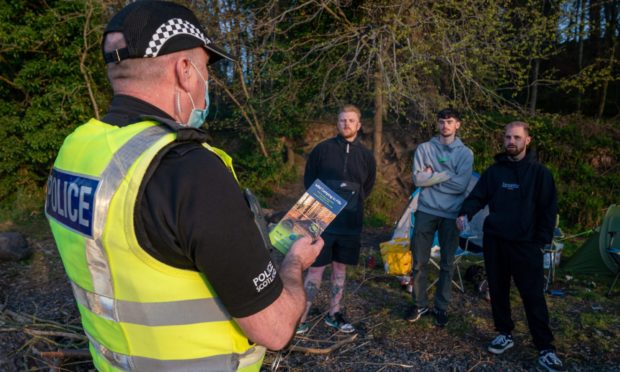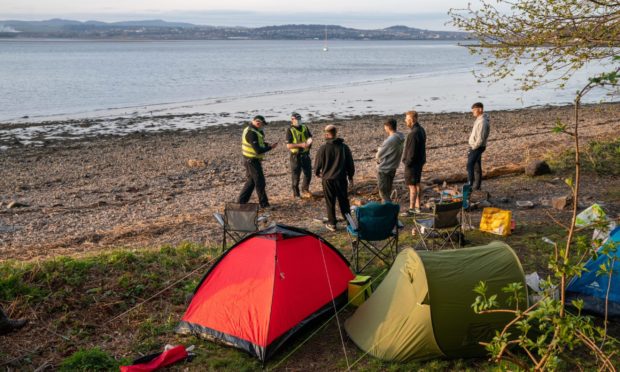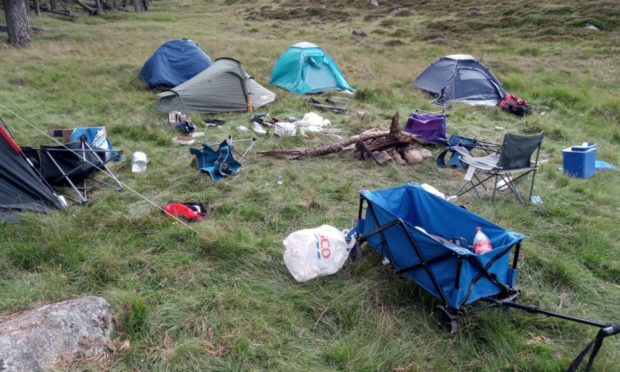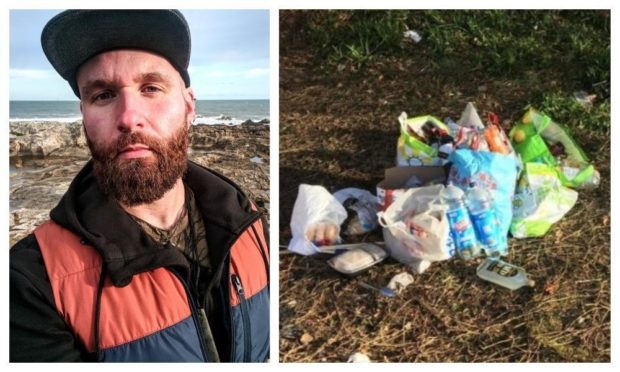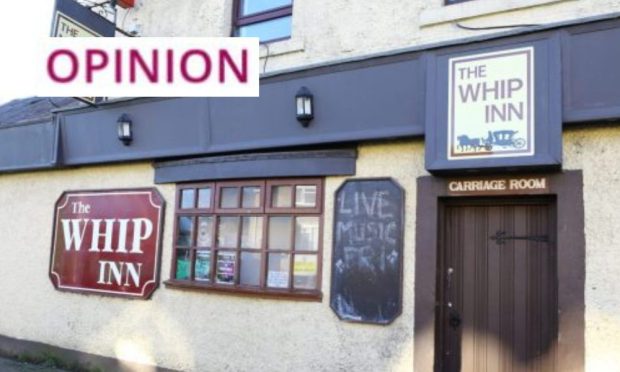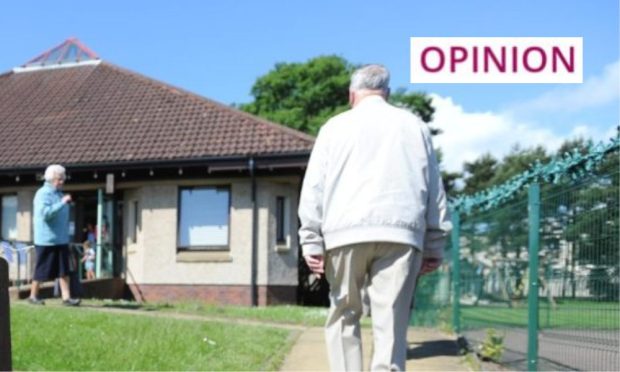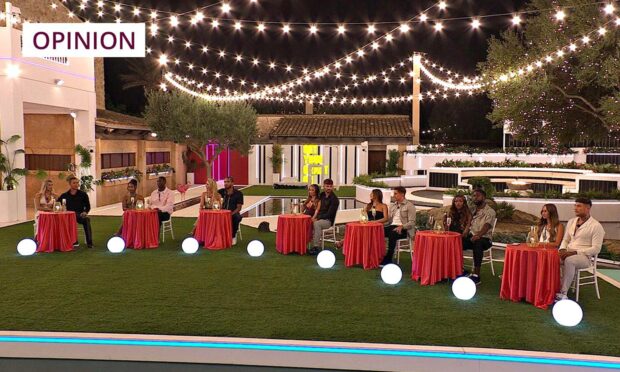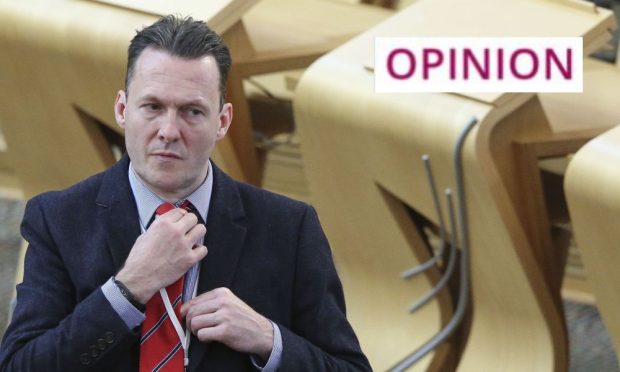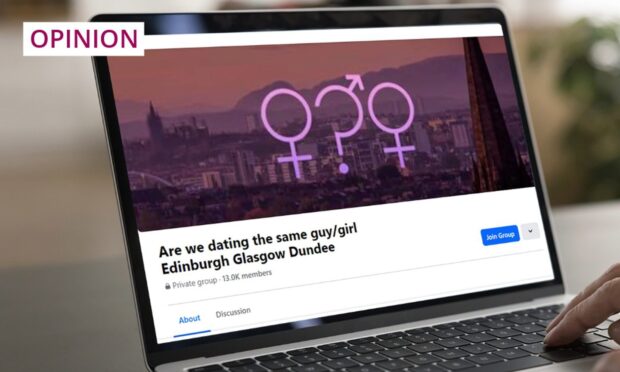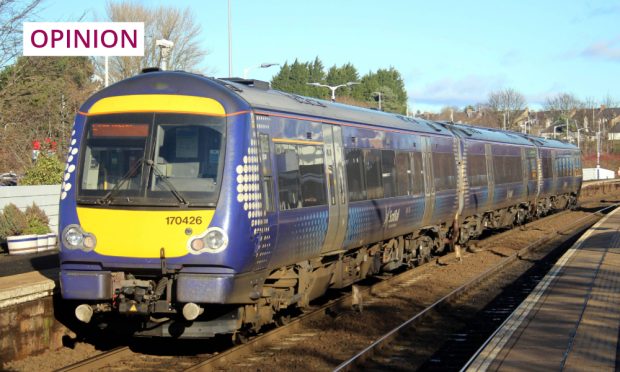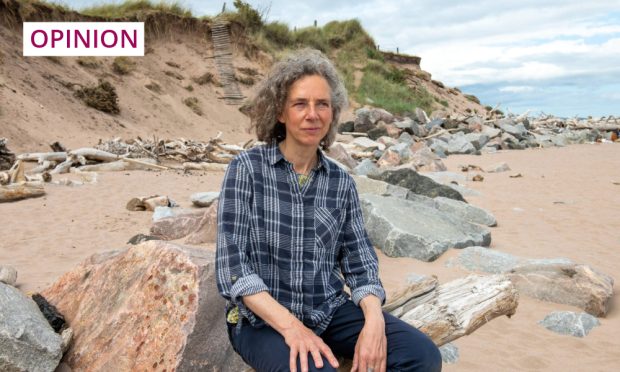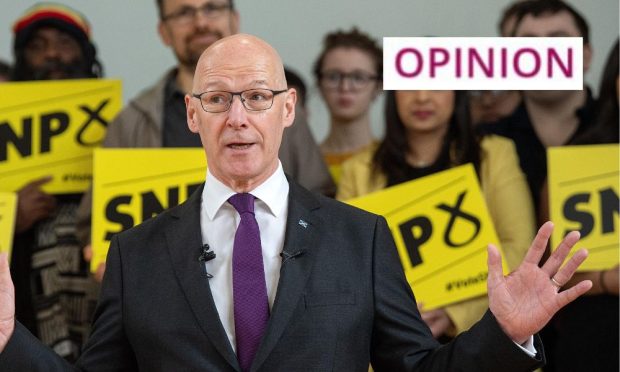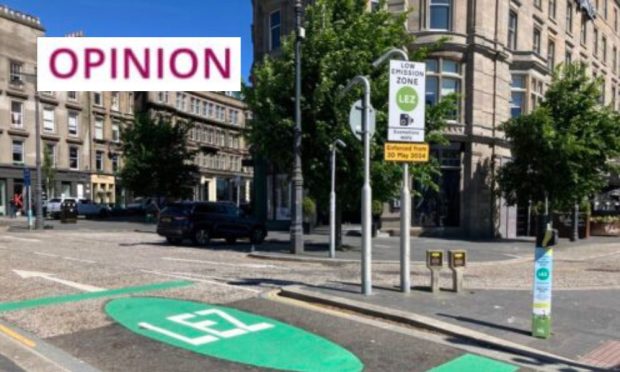Scotland is world famous for its rugged beauty and breath-taking natural habitats ranging from the mountains to the glens, to the lochs.
But this reputation is being put at risk by a surge in more unwelcome additions to our countryside visits: the disposable barbecues, facemasks and used toilet paper left by litter louts, flytippers and dirty campers.
There is an unfortunate tendency for reckless and selfish individuals to damage our environment and ruin everyone’s enjoyment of what Scotland’s green areas have to offer.

Outdoor leisure has increased due to lockdowns, with people getting into the outdoors because they are desperately in need of some fresh air and freedom and indoor leisure activities have been curtailed.
As more people enjoy the great outdoors there is a risk that many of those flocking to the countryside aren’t familiar with the countryside code and don’t have prior knowledge of reasonable behaviour in the outdoors – whether that’s shutting gates behind you, or bringing a bag for litter, because there will likely be no bins.
Littering is just one issue which has been an outdoor access issue post lockdown, there is the irresponsible camping, parking that blocks access, public toileting, and general anti-social behaviours of the few (it’s always the few) spoiling it for everyone else.
Partnership working
It has an impact on our health and wellbeing, wildlife, and our environment in general.
Zero Waste Scotland is working with a range of partners on the littering aspect and there is a huge amount of work taking place to tackle it.
Flytipping is upsetting, anti-social and illegal and it requires a multi-agency response, but authorities do need support from the public.
No one should have to deal with flytipping in their local area, it’s understandably an emotive issue and can be very costly to clean up.
According to research for Zero Waste Scotland, clearing up the mess is expensive, with approximately £53million of public money spent on tackling litter and flytipping each year pre-pandemic.
The indirect impact on littering and flytipping to the economy is estimated to cost over £25million per year. The statistics show that 41,000 tonnes of litter and flytipping is collected each year by local authorities which is estimated to equate to an astonishing 250 million individual items of litter cleared up every year – or 50 pieces of litter for each person in Scotland.
Clearly, some of this action is criminal behaviour, particularly when flytipping is conducted on a quasi-industrial scale by people making money out of others’ waste. But even littering can incur an £80 fine.
Finger pointing isn’t going to help us build long-term relationships… we need to work with people and help them get it right
It has clearly been a tough year and finger pointing isn’t going to help us build long-term relationships with people and persuade them to use correct outdoor behaviours. We need to work with people and help them get it right.
The links to positive mental health is something we need to continue to build on and good, clean, outdoor spaces are a benefit to us all.
We know behaviourally you need to make it easy for people to do right thing. In 2014, Zero Waste Scotland undertook a programme of research to inform the development of the strategy and identify:
- how much littering and fly-tipping takes place in Scotland;
- what waste types make up litter and fly-tipping;
- what litter and fly-tipping costs Scottish society each year;
- what is known about the causes of the problem (specifically in relation to littering);
- and evidence on effective counter measures.
Widespread problem
This led to the publication of the Scotland’s Litter Problem report. Interestingly, no single group or demographic are inherent ‘litterers’. Around half the population admit to having littered ‘at some point’, whether deliberately, accidentally, or simply without thinking.
Though some demographic groups are more likely to litter, they may be motivated to do so by particular circumstances that they find themselves in
These circumstances may be influenced by individual, social and material factors which affect people’s behaviour – for example, people’s own beliefs as to what does and does not constitute littering; what people believe is expected of them and the provision of adequate litter bins.
Some may argue that it’s just human nature – some people just don’t care. Others may think that because they pay their council tax, it’s someone else’s job to pick it up
We are working with stakeholders such as Visit Scotland, who recently launched a campaign #RespectProtectEnjoy to encourage responsible tourism.
So, what can we do to fix a problem that just never seems to go away? It requires different approaches: education and awareness initiatives; communications activities; infrastructure (bins); enforcement; and better monitoring.
Some may argue that it’s just human nature – some people just don’t care whether they leave a mess. Others may think that because they pay their council tax, it’s someone else’s job to pick it up.
Zero Waste Scotland will continue its work to influence positive behaviour change and policy with the aim of convincing Scots to dispose of their waste responsibly.
And remember, the sage old Scots’ adage still applies: “Pit it in a bin, min!”
Iain Gulland is Zero Waste Scotland’s founding chief executive and was the programme director of the predecessor programme, WRAP Scotland.
